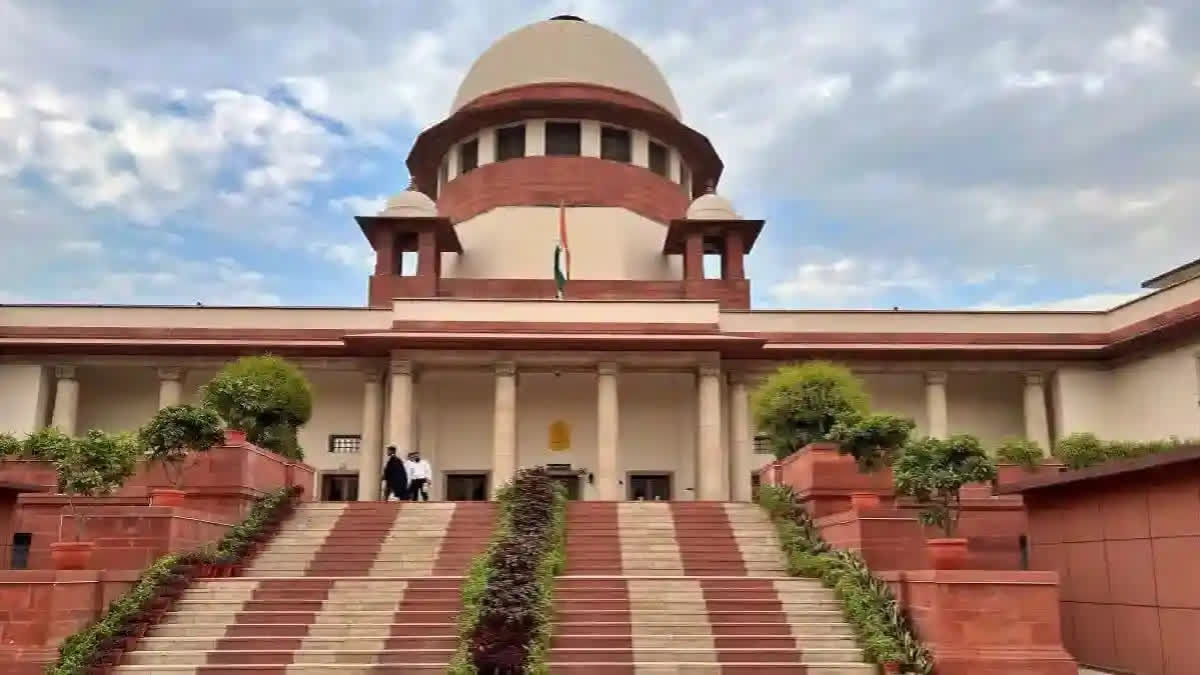New Delhi: The Supreme Court has quashed an FIR lodged against a woman and her father by her husband for allegedly fabricating his signature to obtain a passport for their minor son after a marital dispute, saying “every deceitful act is not unlawful, just as not every unlawful act is deceitful”.
A bench comprising Justices Surya Kant and Dipankar Datta, in a judgment delivered Tuesday, said: “It is well known that every deceitful act is not unlawful, just as not every unlawful act is deceitful. Some acts may be termed both as unlawful as well as deceitful, and such acts alone will fall within the purview of Section 420 IPC”.
The bench stressed that it must also be understood that a statement of fact is deemed ‘deceitful’ when it is false and is knowingly or recklessly made with the intent that it shall be acted upon by another person, resulting in damage or loss.
Justice Kant, who authored the judgment on behalf of the bench, allowed a plea filed by a woman and her father challenging the Karnataka High Court's order and imposed Rs 1 lakh cost on the husband. “The trial magistrate and the high court unfortunately failed to appreciate that the genesis of the present controversy lies in a marital dispute. Respondent No. 2 is alleged to have abandoned the Appellant– wife and the minor child, even during the period when the Appellant–wife was temporarily residing with him in London," said the bench.
The apex court said the biological father and natural guardian of the minor child is positioned as such in relation to the grant of a passport to his son and this grant can be best characterised as the minor child’s acquisition of property.
“Since the gain by the minor child is not at the cost of any loss, damage or injury to Respondent No. 2 (husband), both the fundamental elements of ‘deceit’ and ‘damage or injury’, requisite for constituting the offence of cheating are conspicuously absent in this factual scenario," said Justice Kant, adding that the continuation of the criminal proceedings against the appellants is nothing but an abuse of the process of law.
Justice Kant said instead of wielding judicial authority against the appellants, the trial magistrate should have exercised prudence, making at least a cursory effort to discern the actual ‘victim’ or ‘victimiser, and the failure to do so is both fallible and atrocious. "This court, therefore, will exercise caution before invoking such severe offences and penalties solely on the basis of conjectures and surmises," the bench observed.
It said though the law imposes an obligation upon the husband to provide adequate maintenance to his wife and the minor child, the complaint lodged by the husband on May 13, 2010, while unleashing accusations of forgery and fabrication, is conveniently silent on what measures he has undertaken for his minor child’s welfare. The bench said it is the actions of the father that have seemingly deprived the minor child of his right to seek the care and company of his father, as the passport was allegedly taken away by the father in a clandestine manner.
"It is painful to mention that the husband has not produced any other substantive proof, nor has the investigating agency obtained any such material for further investigation. The basis on which the Trial Magistrate formed a prima facie opinion is beyond our comprehension," the bench said.
The bench said it is important to consider the timeline since immediately after the appellant wife filed an FIR against the husband on April 8, 2010, invoking Sections 346, 498A, 506, and 34 IPC, the counter-complaint by the husband followed on May 13, 2010.
In 2007, the couple got married and it was alleged the husband was engaged in a software business in London, and after a lot of persuasion, he agreed to take his wife to London. Later, he confined her to the residence of her sister-in-law. She, somehow, managed to return to India. The husband during his visit in 2009 threatened the wife and took away the minor child's passport to arrange the travel.
The apex court noted that the passport was issued sometime in 2009 and the question was whether it is a mere coincidence that the husband chose to make his complaint only after an FIR had been lodged against him. "The appellants were unnecessarily implicated and dragged into criminal proceedings, thereby causing undue hardship to them," the bench said.
Read More



